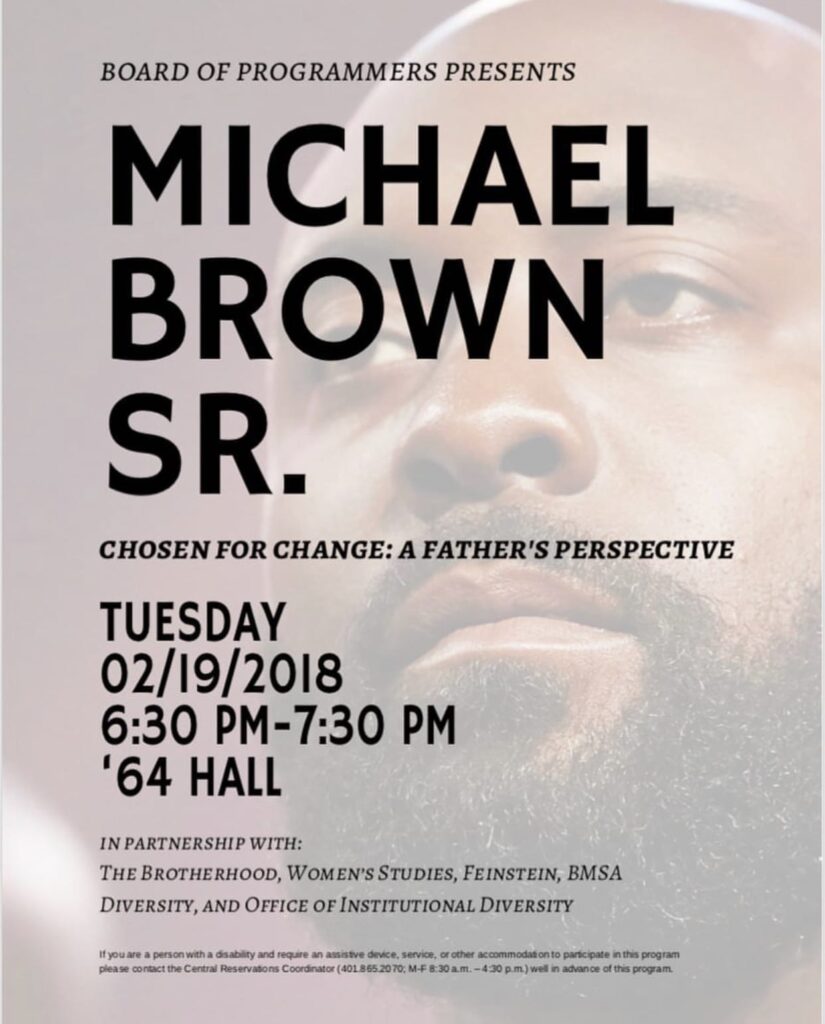Tag: Savannah Plaisted ’21
Tangents and Tirades
by The Cowl Editor on March 21, 2019
Opinion

Maymester: An Alternative Abroad Experience
Studying abroad for a whole semester is a big commitment that may not be right for everybody. But at this young age, college students should take any opportunity they can to travel and explore other cultures.
Luckily, Providence College offers several Maymester options for students to take classes in a different country after the school year ends. These programs typically consist of one three-credit class that is taken over the course of two weeks, usually from mid-May to the beginning of June. These opportunities are also offered during winter break.
This is a great opportunity for students who would like the opportunity to study in a foreign country without having to miss a whole semester at PC. Due to their shorter time span earlier on in the summer, Maymesters most likely will not conflict with internships or other summer job commitments.
As of now, PC is offering a 2019 Maymester in Ghana: “Sustainability & Social Value: Systems Approach to Complex Problem Solving” and also one in Eastern Europe: “Flashpoints: The U.S. & the Cold War in Eastern Europe.”.
Before the real working world begins for college students, one should take any opportunity to travel and explore other cultures and study in another country.
If studying abroad for a semester is not for you, take the time to check out upcoming Maymester opportunities and get out of your comfort zone before you lose the opportunity.
—Marie Sweeney ’20
Ending the “Beach Body” Stereotype
Now that spring break has come and gone, many of us may be breathing a collective sigh of relief that we no longer have to worry about going to the gym every day or straying too far from maintaining a healthy diet in order to have that perfect beach body.
During the weeks leading up to spring break, it always seems as though both the media and even our own peers make it almost impossible not to second guess our own self-confidence.
However, the pressure to have a certain body type does not just exist around spring break. For many, it is constant, and social media apps such as Instagram often make it feel inescapable. While many companies have made noteworthy efforts to be more inclusive and body-positive, there is still an underlying pressure to look a certain way and to have a specific body type.
If you spent your spring break on a beach or by the pool, hopefully you felt completely comfortable and confident in your own skin, because you should.
It is a complete waste of time to compare your body to anyone else’s, especially to those photoshopped influencers you probably follow on Instagram.
There is no such thing as a “beach body.” All you can do is learn to ignore this type of pressure and remember that your body in no way defines who you are.
—Bridget Blain ’19
Reading Past the Headlines
When it comes to talking politics, many choose to refrain from discussing political issues and tend not to keep up with a news source. This is completely acceptable for those that do not have a passion for politics.
It is, however, not acceptable to express interest in politics and advocate for a cause when one is completely blind to what they are actually advocating for. I noticed this type of political ignorance firsthand while interning at the Rhode Island State House and seeing daily protests in response to an upcoming women’s health bill.
With the exception of my boss, every person I had spoken to about this bill was under the impression that it was identical to the bill that recently passed in New York. However, the Rhode Island bill is entirely different.
This type of ignorance in political discussion today is very common and is rooted not in ideologies, but in lack of awareness of the issues.
In the U.S., we are presented with a variety of news forums, and need to carefully select those that contain the least amount of bias. Many seem to base their knowledge of current events simply off headlines that fail to encapsulate the full story.
Whenever you see an important headline, remember to read the full story. Educate yourself before taking a stance on political issues.
—Savannah Plaisted ’21
‘What Crazy Can Do:’ Women’s Month at PC
by The Cowl Editor on March 7, 2019
Opinion

The month of March marks the beginning of a nationwide celebration of women in order to properly recognize the countless contributions they have made to society.
Companies like Nike and Gillette coming out with brilliant ads depicting the ways in which women have accomplished great feats and methods with which society can combat toxic masculinity,.Providence College is also contributing to this celebration through hosting its own number of events to recognize the contributions of women.
The very fact that these events are coming up should serve as a reminder that PC itself could use a few lessons on what it truly means to empower women, and how to battle a climate of toxic masculinity that exists on this campus.
Nike’s ad references the stereotypes typically associated with women, such as being “too emotional” or “crazy,” and how countless women in sports have broken the boundaries of what was expected of them—setting records and breaking the norms set by men in sports. The advertisement is extremely powerful and moving; it reminds women that no matter the feedback they receive as they work to break glass ceilings, they must keep moving forward.
Similarly, Gillette’s ad regarding the issue of toxic masculinity received severe critique and resulted in an explosion on social media of men throwing out their Gillette razors in disgust.
This reaction may seem rather confusing to someone that is conscious of toxic masculinity and refers to certain behaviors by men as such. This response would seem confusing given the fact that the ad clearly states, “We believe in the best in men.”
The ad was meant to empower men, and encourage them to uphold acceptable standards of how to act in a society that maintains a strong prevalence of sexual assault and harassment.
The ad attempts to provide insight into the completely invalid excuse that has become a hallmark of American society, “boys will be boys.” Progressive members of society have now reached a point in which this phrase is altered into a state that is more socially acceptable—that, “Boys will be held accountable for their actions.”
On PC’s campus, one can see how these types of ideals regarding how men are “supposed” to act in a college setting can be extremely harmful, not only to a man’s mental state, but also to any women that come to be associated with such men.
Credit is due to PC for sponsoring events to inspire women during this coming month; however, there is still a lot of work to be done on this campus.
These events include, but are not limited to a “Discussion on Women, Politics, and the 2020 Election” and a “Girls Just Wanna Have Fun Dance.” One can of course appreciate these events; however, they only serve to empower women for a mere week and will become old news by the end of spring break.
The club Women Will held an event last semester to serve as a safe forum for survivors and victims of sexual assault or harassment to share their stories. This event resulted in a number of people coming forward to speak about their experiences with these isues on campus, and how little PC was able to offer them.
The College itself must battle toxic masculinity by eliminating stereotypes of how men are to act and dress on this campus, as well as the prevalence of peer pressure in social situations.
Not only could PC extend their Student Health Center hours so as to provide care for anyone that experiences sexual assault, which is more likely to occur in late night party settings, but the College could also ensure a teaching of the concepts of toxic masculinity and how detrimental they have been to our society, through the core curriculum required of students.
“Silence Aids White Supremacy”: Moving Forward after the Michael Brown Sr. Talk
by The Cowl Editor on February 28, 2019
Opinion

by Savannah Plaisted ’21
Opinion Staff
On Feb. 19, Michael Brown, Sr., looked out at the Providence College community with a 1,000-yard stare as he described the pain and suffering he felt after his unarmed son was murdered by a white police officer in Ferguson, Missouri five years ago.
The shocked reactions coming from the white members of the audience illuminated the necessity of further education about racial relations on campus. The means by which the College should be taking on this problem are alterations of the curriculum, newfound means of dialogue, extracurriculars, or even a day of campus-wide discussion.
The College experienced a wake up call last year when a Snapchat was taken of a student dressed up for Halloween as a rapper. Another student, who took the photo, added a caption with the use of the “n” word without the other student’s knowledge.
The administration did take action and had the students involved speak in a public forum, which also gave offended students the ability to voice their feelings on the matter. However, the administration’s reaction ended there.
While it is true that this Halloween the College required Resident Assistants to pass out information about what is appropriate versus what is not appropriate in terms of costume choices, there have not been enough widespread, long-term resolutions put into place as a result of such an offensive occurrence.
One way to facilitate these difficult conversations could be through the core curriculum. While PC’s core curriculum does require the diversity proficiency to be fulfilled, this does not mean that students are being specifically educated about differences in race.
Therefore, the Development of Western Civilization curriculum is the one area in which PC could change to better educate students and create dialogue on racial relations. DWC professors should ensure that the texts being taught in class are not written only by straight, white men and bring the curriculum further into history to provide chronicles of civil rights movements outside the U.S.
Another way to move forward could be to create a day of discussion regarding these types of issues. Dr. David Ragland, of the Truth Telling project of Ferguson, spoke after Michael Brown, Sr. about the need for these kinds of discussions. He explained it best with the sentiment, “Silence aids white supremacy.” By continuing to remain silent and failing to strongly advocate for a more inclusive campus, PC will continue to maintain its ranking of first place in “Colleges with Little Race/Class Interaction,” according to the Princeton Review.
The administration must take on an empowered initiative to make this necessary dialogue a reality by means of establishing a day (possibly in correlation with the Martin Luther King, Jr. Convocation) to discuss how destructive discrepancies among various races are to society.
Given the fact that PC began its history as an all- male, primarily white school, it has come a long way in terms of altering the demographics it represents; however, there is also more progress to be made.
To give more of an idea about why PC needs this education as badly as it does, one can look to what Michael Brown, Sr.’s presence meant on campus. Students who might have had no idea who Michael Brown, Jr. was now understand what his death meant for racial relations in the U.S., specifically in terms of how many major cities erupted in riots afterwards.
While discussing the ideas behind the establishment of the Black Lives Matter movement, Ragland referred to it as “challenging silence.” That type of challenge is exactly what the PC community needs to take on, and can do so by providing a better education to its students on the types of discrepancies that exist in the United States, and on a smaller scale, in Providence.
We must continue to ask ourselves what we can do to change the direction of racial relations on campus.
